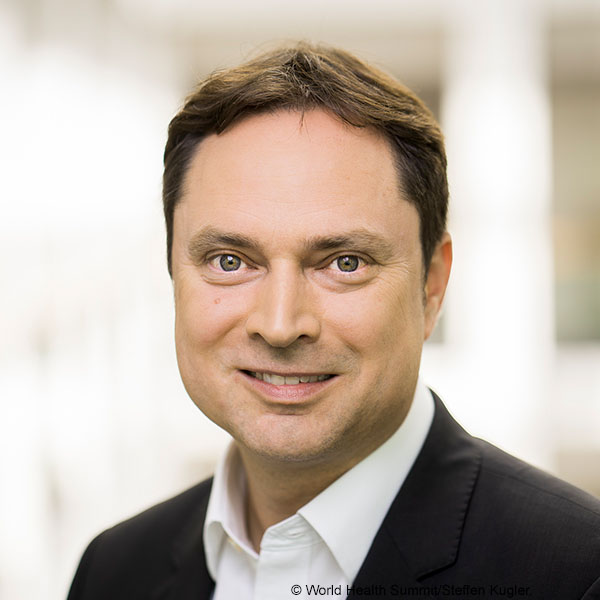Interview: Questions to Dr. Jörg Heldmann, Managing Director of the Charité subsidiary WHS Foundation GmbH on the World Health Summit

The World Health Summit was founded in 2009 in Berlin. How did it come about and what role did Berlin play?
The World Health Summit was founded for the 300th anniversary of Charité. The conference was intended to honour and carry on the legacy of physician and politician Rudolf Virchow as part of the celebration. The name World Health Summit was very ambitious and far-sighted from today’s perspective, given that at the time the whole enterprise was intended more as a smaller public health conference. However, it very quickly evolved towards global topics, i.e. global health. The World Health Summit was, incidentally, successful from the very beginning: thanks to its international network, Charité was able to attract a huge number of experts, with over 1,000 participants from all around the world attending the first event.
How have the topics and formats of the World Health Summit developed since then?
The formats have proven themselves over the years and remained more or less the same. The keynotes are our lecture format with the more big picture topics. In the panel discussions, the speakers engage with one another on stage, and it can sometimes be very controversial. In our third format, the workshops, the panelists speak to the public. The thematic focus of the World Health Summit has changed: at the beginning, it was rather academic in nature, although there were already many participants from other areas such as politics, civil society and industry. In the meantime, the political aspect has become much more important which is also due to the fact that Germany is playing an increasingly important role in global health policy - in any case, it’s an important location for life sciences and the healthcare industry.
What do you see as the key issues for the World Health Summit in the coming years?
Protection against epidemics and pandemics will remain a big issue in the future. It was previously thought that the international community had already made more progress. However, the current situation has shown that many questions remain unanswered. At the World Health Summit, pandemic preparedness has played a role from the very beginning. Improving healthcare systems worldwide is also one of the top issues and a significant project for coming years, as well as, of course, digitalisation and artificial intelligence in research and healthcare. Not to mention climate change and health. This is another issue that the World Health Summit has been dealing with for many years. This issue is rightly becoming more and more important and gaining the attention of the (professional) public and politicians.
What opportunities do companies have to get involved in the issue of global health as part of the World Health Summit?
Companies come into the picture when it’s a question of products and processes. Without them, it wouldn’t be possible. The current pandemic has shown that products that help come from business. These products are in turn based on previous, partially publicly funded research. Business is therefore an integral part of the World Health Summit. However, the companies cannot engage in product placement with us; rather the focus is always on strategies and the big picture. Especially for developing regions, companies from start-ups to corporations can provide expertise that you won’t find elsewhere.
You’re not only Managing Director of the World Health Summit, but also administrative director of the Charité Global Health unit. What tasks does this unit have?
Charité Global Health was founded in 2018 and is above all a link between the many institutes, clinics and people running relevant projects in research, teaching and healthcare in the area of global health, the board of Charité and external stakeholders from other sectors. The Global Health unit, which Charité virologist Christian Droste and I lead, has ensured that this changes and the diverse research and work on this topic becomes more visible. The next step is to strengthen the topic through structural development in the form of a separate centre. There’s no doubt that global health is becoming more important overall and Germany and Berlin will play an essential role in it.



